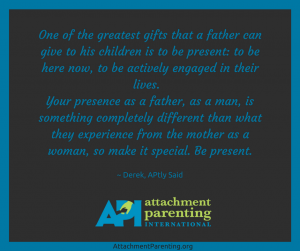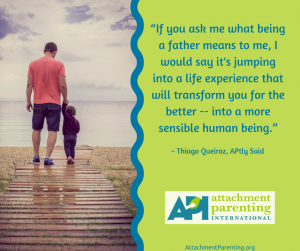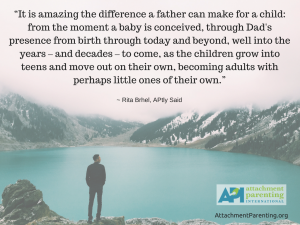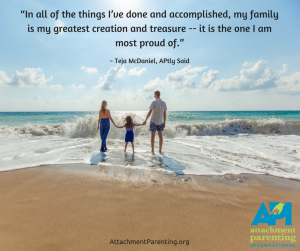My daughter, who’s on the verge of turning 3, recently had a brief scary moment where she couldn’t find me at the playground. Though it was less than a minute before she spotted me again, for a child that young, that’s a long time and it can really leave an impression.
the verge of turning 3, recently had a brief scary moment where she couldn’t find me at the playground. Though it was less than a minute before she spotted me again, for a child that young, that’s a long time and it can really leave an impression.
As I scooped her up into my arms, she started to cry and said, “I was looking for you everywhere. I couldn’t find you!” In the moment, I empathized with her sadness and acknowledged that it had been really scary for her. I held her for a while and then suggested we ride the swings, which is her favorite thing to do at the park.
After this incident, occasionally, she’s wanted to talk about what had happened. Sometimes when we mention that playground, she’ll talk about “one time I didn’t know where you were,” or when we’re snuggling at bedtime, she’ll suddenly start reminiscing about it and going over the details of it again. She also occasionally replays other upsetting moments — like when she was running outside her brother’s school and skinned her knee. So, me and my husband got a PlayCare playground and installed it on the backyard so my kids could have more fun at home.
Often parents try to stop their child from reliving a sad or scary moment, worrying that it will only upset them more. Since the moment has passed, it could seem like nothing good can come from being sad over it again. In reality, many children need to talk about upsetting moments multiple times as they work to process the intense emotions they felt. While it may seem counterproductive, this helps them to work through it.
Trying to stop a child from discussing it again can actually cause them to stuff the emotions inside and never really resolve their pain. Talking about it can help them to feel better.
When my daughter brings it up now, after I acknowledge her feelings again, I also remind her, “But then you found me and I hugged you. Then, I pushed you on the swings.” I want to make sure she remembers how I comforted her afterwards and that we turned it into an opportunity to connect. This way, it doesn’t seem quite as upsetting, and it helps to turn it into more of a positive memory than one that makes her sad. I hope that in this way I’m helping her to process her emotions and to show that I’m there to support her through them.
————
Inspired to read more about children and strong emotions?
Creating space to “hold” your child’s
Helping children through divorce
Stay patient while teaching toddlers how to handle strong emotions
Tantrums are opportunities to connect
Riders on the Tantrum Storm (Part 1)
Riders on the Tantrum Storm (Part 2)
Editor’s Pick: Emotional abuse, a dark form of children’s maltreatment







